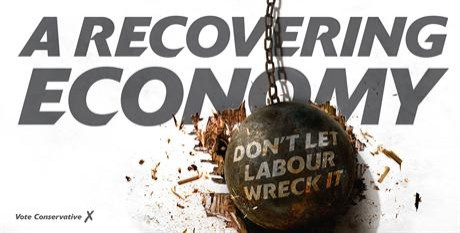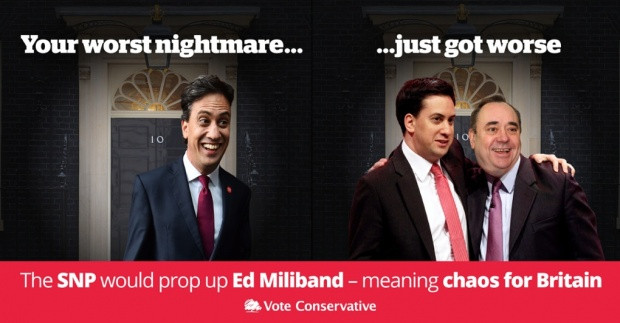Stephen Foster: David Cameron and Ed Miliband, a brave ad campaign may lead to election victory
The general election in the UK takes place on 7 May but the campaign, for all parties, really kicks off on 18 March when Chancellor George Osborne delivers the last Budget statement of this parliament.
Osborne's form is mixed on these occasions: a couple of years ago he delivered a sloppy budget – distracted, it seems, by his desire to go to Washington to cosy up to US President Barack Obama.

But this budget matters far more: it's the last real opportunity for the Tories to bribe the electorate with the unlikely combo of yet more "austerity" (to bring down the deficit) sweetened by tax cuts for the people most likely to vote for them.
And this one will define the battleground of the general election. What will the advertising and marketing wizards make of it?
We've had a few clues already. The Tories, even though they've made no official announcement, seem to have stuck with Lord (Maurice) Saatchi of M&C Saatchi, which produced a striking poster earlier in March.
This explains pretty clearly what the Tory strategy will be: hang on to nurse (David Cameron) for fear of something worse (Labour's Ed Miliband).
Majority victory looks unlikely
And it may well work. But the inconvenient truth is that no party looks like getting enough seats to form a majority in 2015. Instead, both the Tories and Labour seem to be determined to hang on to what they already have – around 32% of the vote each according to most measures – even though this won't deliver a majority.
This rather questionable policy must be the main reason why Cameron is so reluctant to take part in a TV debate with Miliband. Conventional wisdom has it that Liberal Democrat leader Nick Clegg's strong performance in the TV debates in 2010 took votes away from the Tories and led to the coalition, as opposed to a Tory majority government.

Cameron's Australian political adviser, Lynton Crosby, evidently believes this too, rather overlooking the fact that in refusing a debate he's making his client look like a wuss, which doesn't play well with the UK electorate.
There will be innumerable advertising, marketing and research "experts" crawling all over these campaigns between now and 7 May. Sometimes politicians will listen to them, sometimes they won't.
A 'conservative' strategy must deliver
But what the honest marketers will say is that in a winner-takes-all race, which is what the British political system is, there's no point in a "conservative" strategy that doesn't deliver the desired result: a Parliamentary majority.
Any marketing professional worth his or her salt would say: "If you've got the money [which both main parties have] go for something that breaks the log jam."
This could be a policy that completely upsets the apple cart, as Osborne's "promise" to raise the inheritance tax threshold to £1m did in 2010 (it unhinged then Prime Minister Gordon Brown's plan to go for an early election). Unfortunately, Osborne forgot about this sensible change once in government.
Or an ad campaign that actually promises voters a better life as opposed to just aiming brickbats at political opponents. What is there to lose? Bet they don't do it. Although Osborne may confound us on 18 March.
Stephen Foster is editor of More About Advertising, a former editor of Marketing Week and a London Evening Standard advertising columnist. He wrote City Republic for Brand Republic and is a partner in communications consultancy The Editorial Partnership.
© Copyright IBTimes 2025. All rights reserved.






















